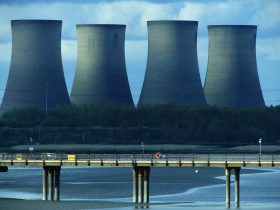Air pollution is a significant global challenge that has detrimental effects on both human health and the environment. As awareness of the consequences of air pollution grows, so does the importance of finding effective solutions to reduce emissions. Ethical investments, also known as socially responsible investments, are investments made with the intention of generating positive social and environmental impact alongside financial returns. In this article, we will explore the impact of ethical investments in air pollution reduction, the various strategies and approaches used, and the potential benefits and challenges associated with these investments.
The Importance of Ethical Investments in Air Pollution Reduction
Addressing the environmental and health impacts of air pollution
Air pollution is a major contributor to environmental degradation and has significant negative impacts on public health. Ethical investments in air pollution reduction play a crucial role in addressing these issues by channeling funds toward projects and initiatives that aim to reduce emissions, improve air quality, and promote sustainable practices.
Promoting sustainable development and corporate responsibility
Ethical investments in air pollution reduction align with the principles of sustainable development and corporate responsibility. By investing in companies and projects that prioritize environmental sustainability, investors can contribute to the transition towards a greener and healthier future.

Encouraging innovation and technological advancements
Ethical investments in air pollution reduction also act as catalysts for innovation and technological advancements. By directing funds towards clean technologies, renewable energy sources, and sustainable transportation solutions, investors can support the development and implementation of innovative strategies to combat air pollution.
Strategies and Approaches in Ethical Investments for Air Pollution Reduction
Investing in renewable energy
Investing in renewable energy sources, such as solar, wind, and hydroelectric power, is a common strategy in ethical investments for air pollution reduction. These investments aim to shift away from fossil fuels, which are major contributors to air pollution, and promote the adoption of clean and sustainable energy alternatives.
Supporting clean transportation initiatives
Ethical investments also focus on supporting clean transportation initiatives, such as electric vehicles (EVs) and public transportation systems. By investing in companies that manufacture EVs or develop infrastructure for electric charging stations, investors can contribute to the reduction of air pollution caused by transportation emissions.
Funding research and development
Investing in research and development (R&D) projects related to air pollution reduction is another approach taken by ethical investors. These investments support the development of innovative technologies, such as air pollution monitoring systems, emission control devices, and sustainable manufacturing practices.
Engaging in shareholder activism
Ethical investors often engage in shareholder activism, which involves using their influence as shareholders to push companies toward adopting more sustainable practices. By advocating for transparent reporting, stricter environmental regulations, and emission reduction targets, ethical investors can encourage companies to prioritize air pollution reduction.
Benefits and Challenges of Ethical Investments in Air Pollution Reduction
Environmental and health benefits
Ethical investments in air pollution reduction have the potential to deliver significant environmental and health benefits. By supporting projects that aim to reduce emissions and improve air quality, these investments contribute to the overall well-being of communities and ecosystems.
Financial returns and risk management
Contrary to the misconception that ethical investments yield lower financial returns, studies have shown that companies with strong environmental, social, and governance (ESG) performance can outperform their peers in the long run. Ethical investments also offer risk management benefits, as companies focused on sustainable practices are better equipped to adapt to regulatory changes and mitigate environmental risks.
Lack of standardized metrics and reporting
One of the challenges associated with ethical investments in air pollution reduction is the lack of standardized metrics and reporting frameworks. This makes it difficult for investors to evaluate the impact of their investments accurately and compare the performance of different companies and projects.
Limited investment options and market size
The availability of ethical investment options in the air pollution reduction sector may be limited compared to conventional investment opportunities. The relatively smaller market size and fewer established companies in this sector can pose challenges for investors seeking to diversify their portfolios.
Balancing financial returns and impact
Balancing financial returns with the desired social and environmental impact can be a challenge for ethical investors. Striking the right balance requires careful consideration of investment opportunities, risk assessment, and alignment with personal values and goals.
Conclusion
Ethical investments play a crucial role in addressing the global challenge of air pollution. By channeling funds towards projects and initiatives that aim to reduce emissions, improve air quality, and promote sustainable practices, ethical investors can contribute to a greener and healthier future. Strategies such as investing in renewable energy, supporting clean transportation initiatives, funding research and development, and engaging in shareholder activism are key approaches to ethical investments for air pollution reduction. While ethical investments offer environmental, health, and financial benefits, challenges such as the lack of standardized metrics, limited investment options, and the need to balance financial returns with impact should be carefully considered. Despite these challenges, ethical investments in air pollution reduction have the potential to drive positive change and create a more sustainable future for generations to come.

































